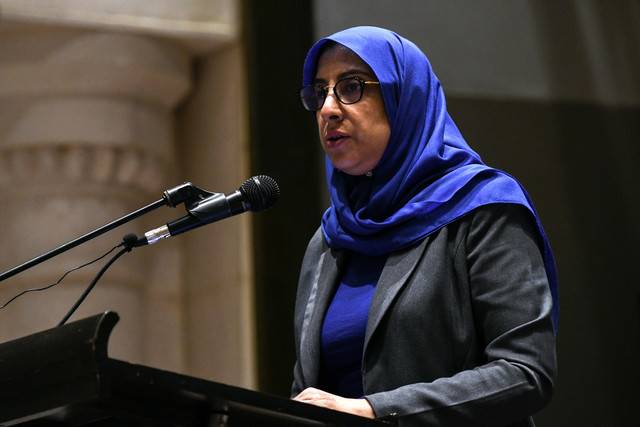Judiciary takes the lead in gender equality reforms, says Latheefa Koya
Latheefa who is also former Malaysian Anti-Corruption Commission (MACC) chief commissioner commended the judiciary for taking the lead where the government has failed, highlighting that true gender equality requires comprehensive policy and legislative reforms.

SHAH ALAM - Lawyer-activist Latheefa Koya has slammed the government's handling of gender equality issues, despite recent judicial progress such as the striking down of Section 498 of the Penal Code, which pertained to the enticement of married women.
Latheefa who is also former Malaysian Anti-Corruption Commission (MACC) chief commissioner commended the judiciary for taking the lead where the government has failed, highlighting that true gender equality requires comprehensive policy and legislative reforms.
"Section 498 of the Penal Code is about the enticement of married women...who would have thought it would take until 2024 for Section 498 to be struck down?
"Finally, the judges did it, not the government," said Latheefa during one forum held at the Connexion Conference & Convention Centre (Nexus), Bangsar South.
The forum, part of the Malaysia Women and Girls Forum (MWGF) 2024 and themed "Women and Nation Building: The Foundation for Diversity, Equity, and Inclusion," convened on Dec 12 to address critical gender equality issues.
Organised by the United Nations and the United Nations Population Fund (UNFPA) Malaysia, it gathered policymakers, academics, youth, and civil society representatives to discuss strategies for advancing women’s rights and empowerment.
The Lawyers for Liberty executive director and founder also pointed out that Article 8 of the Federal Constitution, which provides for equality, has limited scope covering specific areas such as public employment and property rights.
"This limitation means that merely amending the law is insufficient. The government must take a hands-on approach to enforce gender equality through both policy and legislation," she said, adding that successive governments have remained tone-deaf to gender issues.
The former lawmaker also criticised the lack of impactful actions by women’s ministries, accusing them of making “fancy statements” without achieving meaningful results.
She also cited the systemic failure to address gender inequality, highlighting the government’s reluctance to grant Malaysian mothers the same citizenship rights as fathers for their children born abroad.
"When these mothers brought their kids to court to fight against medieval laws, it was the government itself that fought against them," she said.
While constitutional amendments were eventually made to address this issue, Latheefa stated that the changes were not applied retrospectively, leaving many families in legal uncertainty.
She shared the story of four siblings—Azik, Azrin, Azara, and Azalia—born and raised in Malaysia to a Malaysian father and an Indonesian mother.
Despite never leaving the country, they were rendered stateless because their parents' marriage, unregistered in Malaysia, was not recognised by the government.
Latheefa condemned the reliance on Section 17, Part 2 of the Constitution, which assigns illegitimate children their mother’s citizenship.
She argued that the law unjustly denies these children their rightful nationality, calling it discriminatory and unfair.
On a separate matter, Latheefa expressed concern over judicial appointments and the potential erosion of judicial independence once the current progressive judges retire.
She highlighted ongoing challenges in courts against discriminatory laws, including Section 17, and criticised the lack of transparency in the judicial appointment process.
“We do not know what the future holds. What I can say is that there must be a concerted effort by organisations, activists, lawyers and the public to ensure that the bias of gender inequality is extinguished from our laws,” she said.















